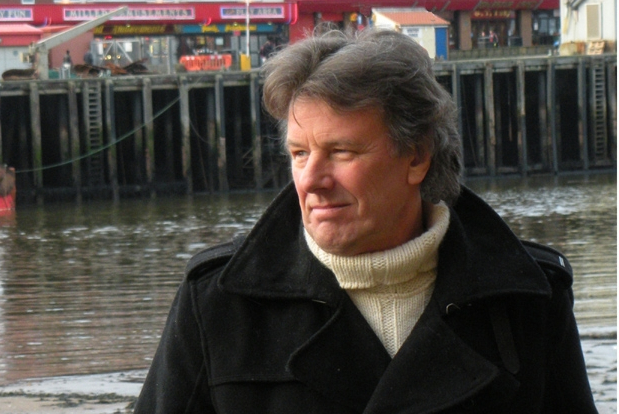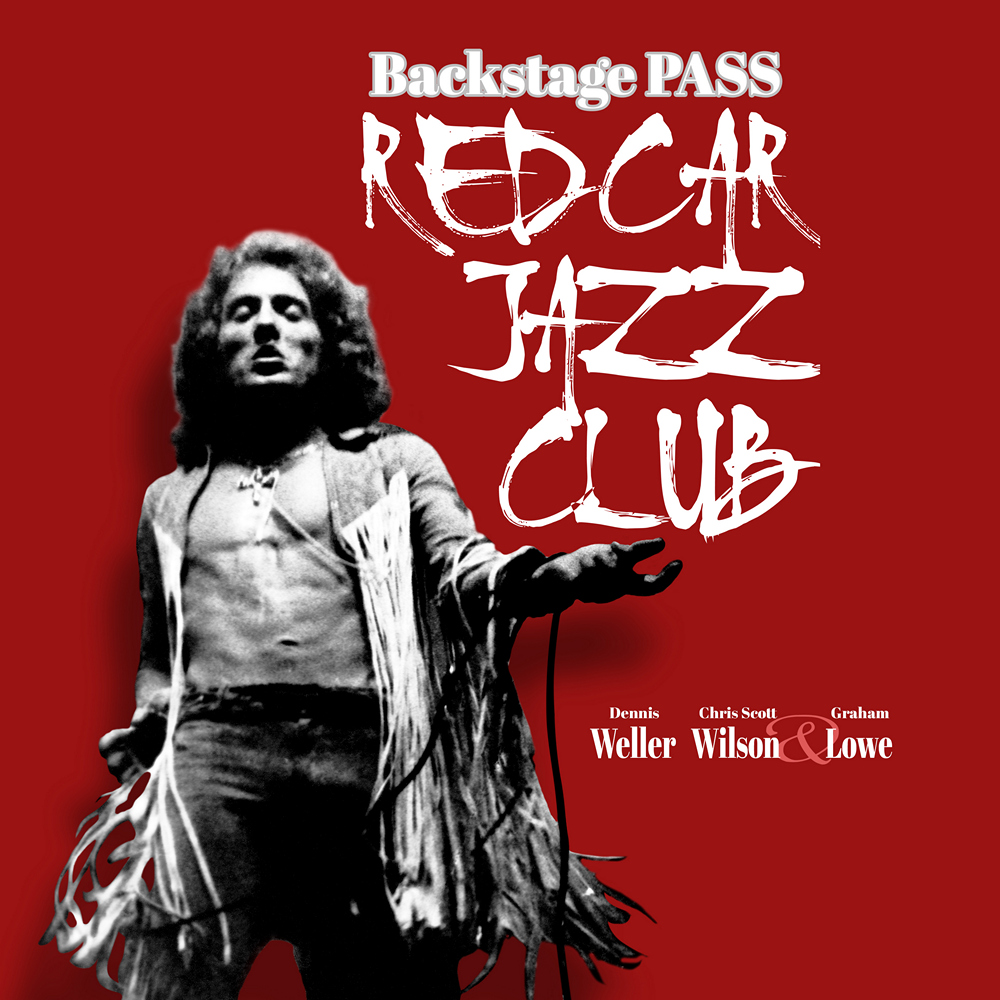
Yorkshire born Chris has authored eleven books, collaborated on two others, contributed to newspapers and magazines and written promotional material for local and international musicians.
Two of his books highlighted here are Boys in the Bands: Teesside’s Groups 1960-70 and Backstage Pass: Redcar Jazz Club.
“I felt those 1960s needed to be documented, the musical history needs preserving because once it’s gone, it’ll be lost forever” said Chris.
Saltburn born International rock star David Coverdale (Deep Purple/Whitesnake) added…
“Christopher Wilson has written and collated a genuinely touching and refreshing stroll down Memory Lane with this fabulous book.
It opens so many joy filled memories of evenings spent in the breath taking company of the original Fleetwood Mac, The Who, Joe Cocker… many of whom I had the extraordinary pleasure of opening for when I was in local bands. A must have and a must read”.

What inspired you to research and put the books together ?
After writing five westerns, five local history books and a couple of historical fiction books, I wrote a piece about the band Cream in response to a request from an Australian website called Those Were The Days.
Also, two photographers who had covered Redcar Jazz Club were interested, one of them, Dennis Weller, read my piece on Cream and contacted me and proposed working together.
My initial interest in the Redcar Jazz club was ignited one night in 1966 when I sneaked in to watch a band I’d never heard of, they were billed as The Cream. That night changed my life.
I’d seen many acts at the Jazz Club so I set out to create a book I wanted to read, incorporating the club’s story, a full timeline of dates, what the headliners and support acts got paid, photographs, vignettes of the artists and ticket buyers – as many quotes as I could get.
For the designer I had a few ideas about layout and mocked up a few pages to help explain what sort of format we wanted. It was very primitive, I was flying by the seat of my pants. Eventually it was pasted up for the printer and became Backstage Pass : Redcar Jazz Club.
After publication, a big surprise was an unsolicited email out of the blue from Ed Bicknell who managed Dire Straits, Gerry Rafferty, Bryan Ferry and Scott Walker among others, and his email was headed FOREWORD (for the next edition). That in itself was proof he liked the book enough to have his name on it.
In Boys in the Band I look at the 1960’s where many pubs and workingmen’s clubs provided venues for bands who played most nights, a day off was a luxury.
Most musicians were content in earning an extra few quid on their day job and having a laugh – others were more ambitious wanting to take it further. But they all started on Teesside honing their musical chops.
Chris drew on his experience as a drummer in the 1960s playing for local bands…
Yes I started playing drums in a band at school then switched to guitar, but after seeing Hendrix live at the Kirklevington Country Club and Cream twice I went back to playing drums and The Wheel played all over Teesside and North Yorkshire and as far south as Birmingham, we also played Annabel’s in Sunderland, the Quay Club in Newcastle and up to Ashington.
Late 60s early 70s I was in Candy Factory a professional club band who played workingmen’s clubs, including the infamous Downhill Social in Sunderland. Also the Bailey nightclub circuit including Change Is and La Dolce Vita in Newcastle, Latinos in South Shields and Wetherells in Sunderland when John Miles and Toby Twirl were on the circuit.
We were offered work in South Africa and France but it didn’t feel right.
With a couple of line-up changes Candy Factory morphed into Pretty Like Me with a less friendly club repertoire and we were working from the Mayfair in Newcastle down to London, and picking up university gigs. But the mid-week gig staples were always those kids’ nights in the County Durham clubs when you could play heavy stuff.
The mantra there was always, “Can you play The ‘unter or Born To be Wild?” Didn’t matter what else we played, we always played those.
Did you record any of your songs ?
We did cut a couple of demos of self-penned material. First was in a studio in a basement in Newcastle and another in Redcar, but we weren’t satisfied with them. They never seemed to capture what we thought we had.
No cassettes then or CDs to bombard A&R guys with, we got a few expensive acetates which all seem to have disappeared now.
When the band later imploded I had to get a ‘proper job’ and working shifts in heavy industry, albeit mostly in laboratories, not conducive to a musical lifestyle. With not playing I needed a creative output and started writing, short stories at first, then books.

Where you surprised about the feedback for Backstage Pass and Boys in the Bands ?
I worried how many people were interested enough to buy a copy of Backstage Pass. In fact I was astonished at how well received it was. There is something to be said for timing, maybe we hit the right moment – after seven years it’s still selling.
It was launched at Kirkleatham Old Hall Museum and the photographers – Dennis Weller, Graham Lowe and I did signing sessions at bookshops.
That book had been built around the photographs, which were extraordinary, but there were no images of the support bands except one, who had been personal friends of Graham. I insisted on including a few pages explaining who the support acts were and including them on the gig timeline.
After Backstage Pass was published, several local musicians hinted there had never been anything produced specifically about them, and although many of them had settled for a steady working lifestyle, their playing years, often only a handful, had been a big part of their lives – a big adventure.
I felt exactly like them. I had told stories of how it was – both the good and the bad, and the more I thought about it, more memories came back.
I wanted to kick-start their memories too. Since Boys In The Bands has been released…well the comments from local musicians on my website reveal what they thought of it.
What are you working on now ?
I’m putting together a book about the Redcar Coatham Bowl which was open 1973 – 2014. Information and gig records are patchy, especially support bands, I think it’s important to include local musicians who worked just as hard as the headliners, and for a lot less.
At present I’m trying to confirm dates – and as a support bands’ name get mentioned I’m trying to contact them to confirm they played, and if they played other dates in the Bowl as yet unrecorded.
This becomes especially difficult when bands are long disbanded and don’t maintain social media pages or websites.
If you have any information that will help Chris in his research or would like to buy his books contact him at his official website: http://www.chrisscottwilson.co.uk
Alikivi June 2022